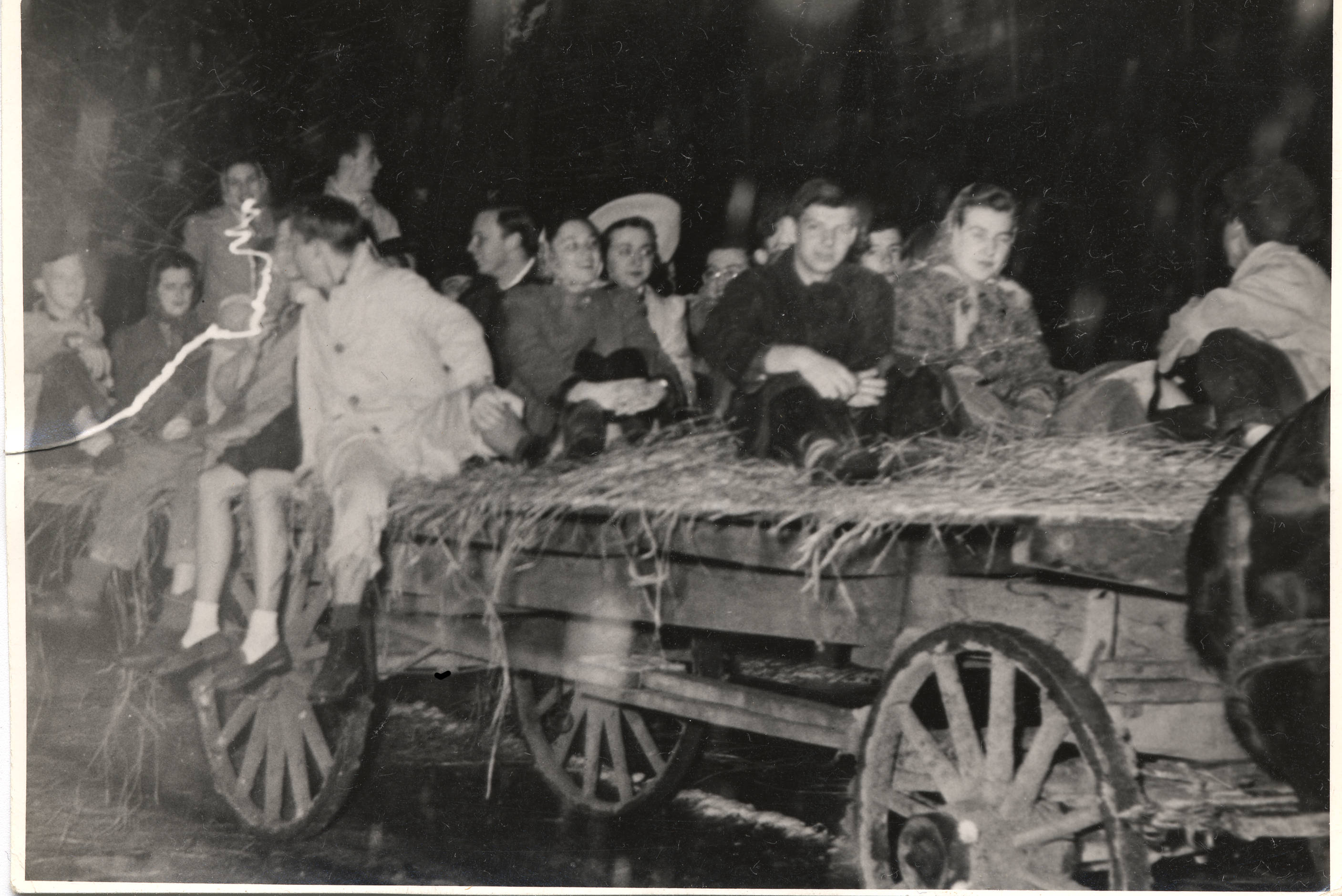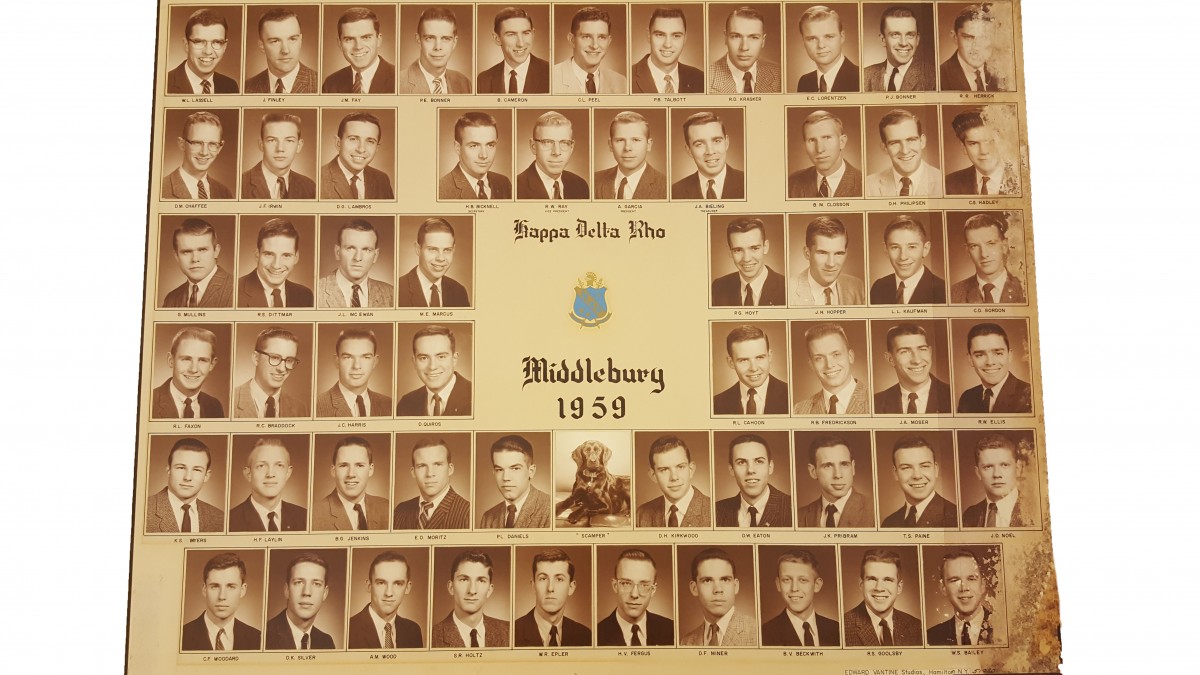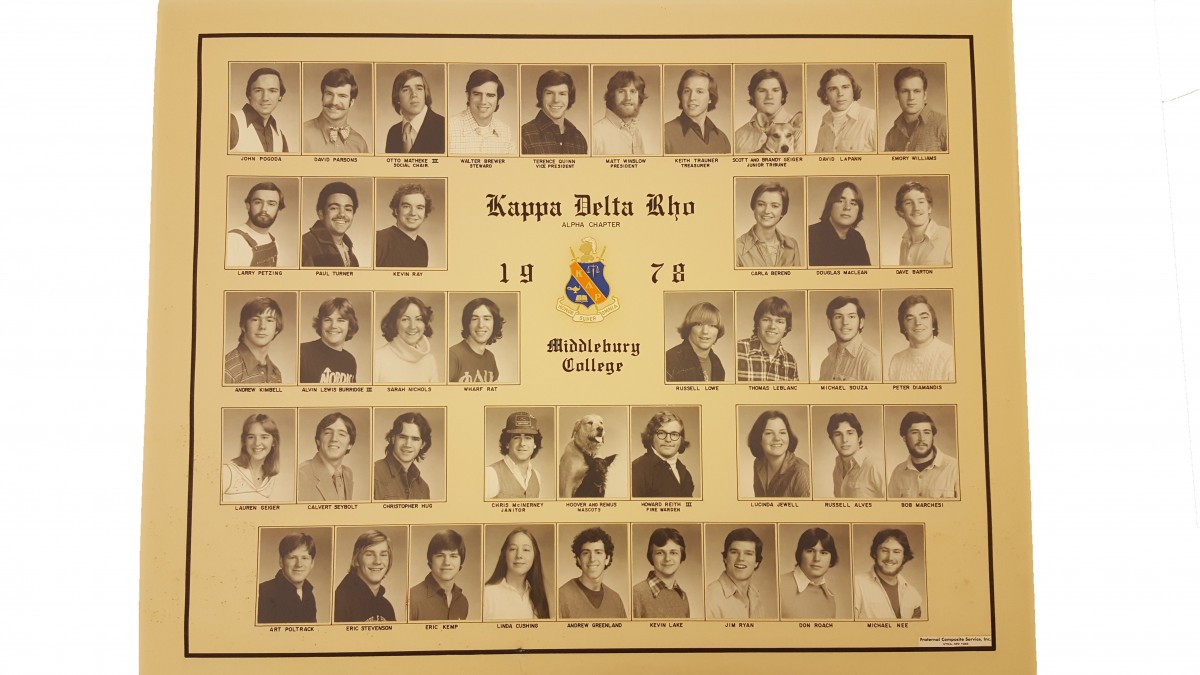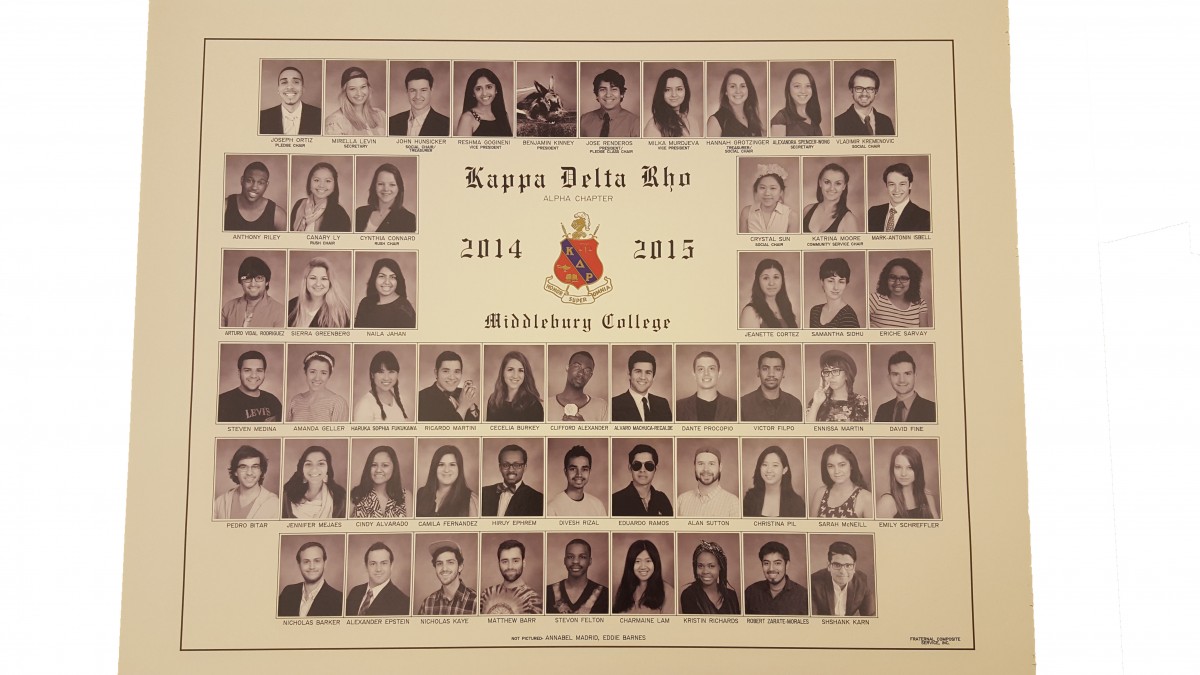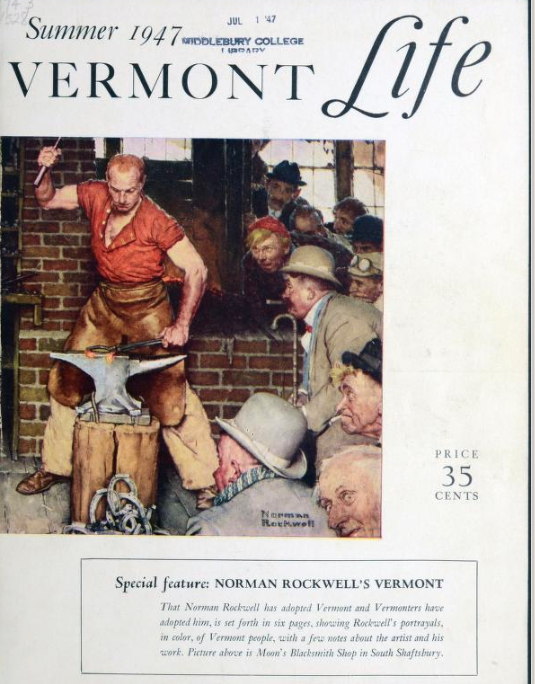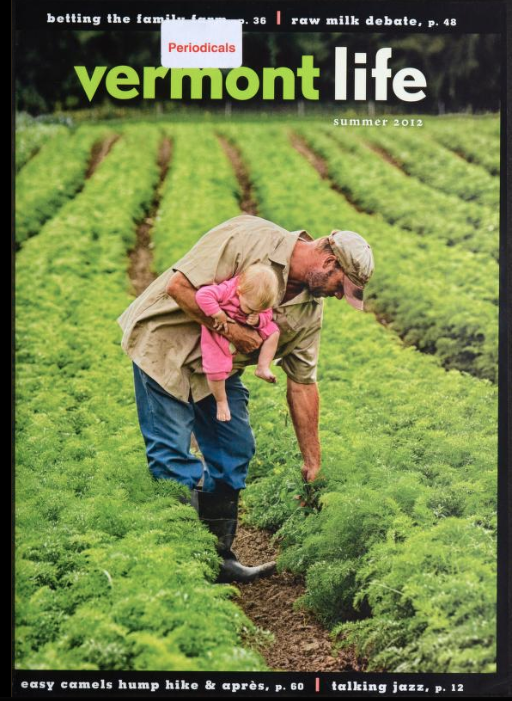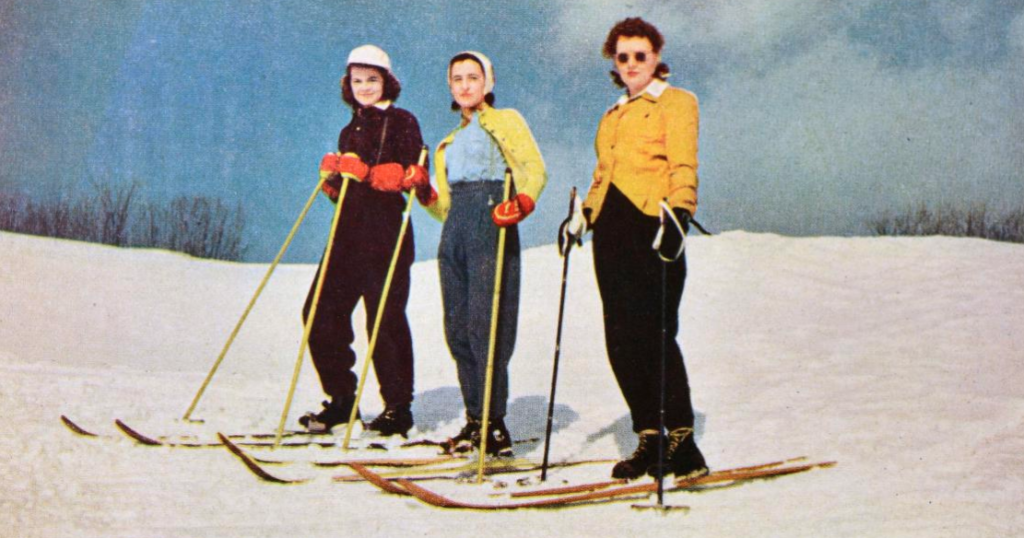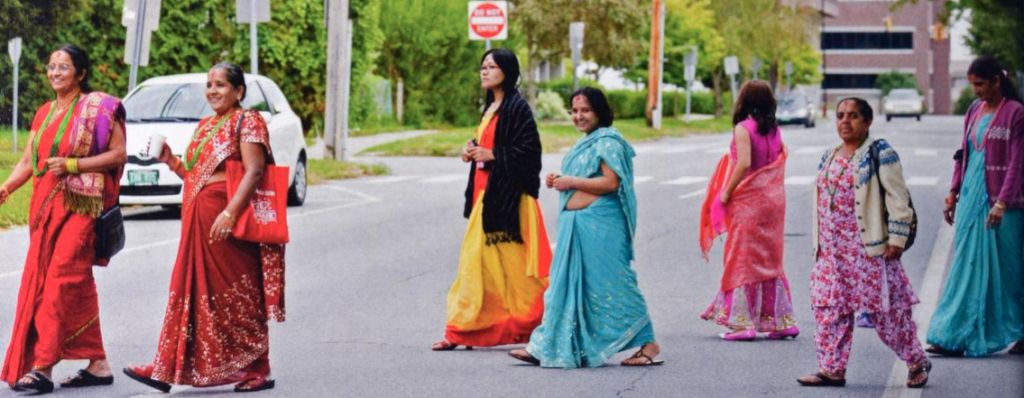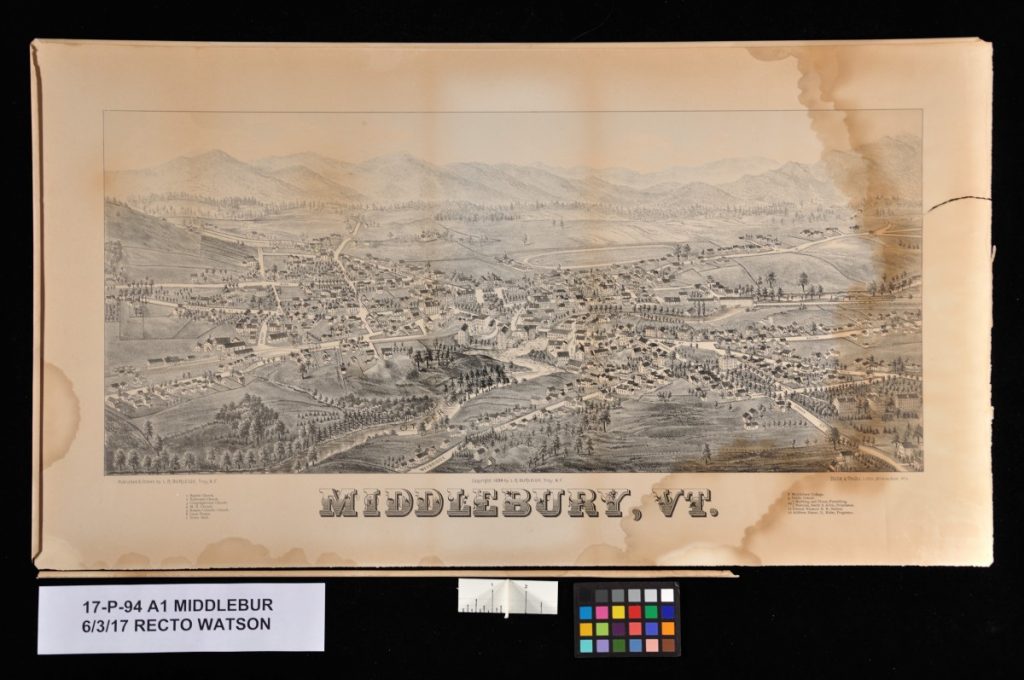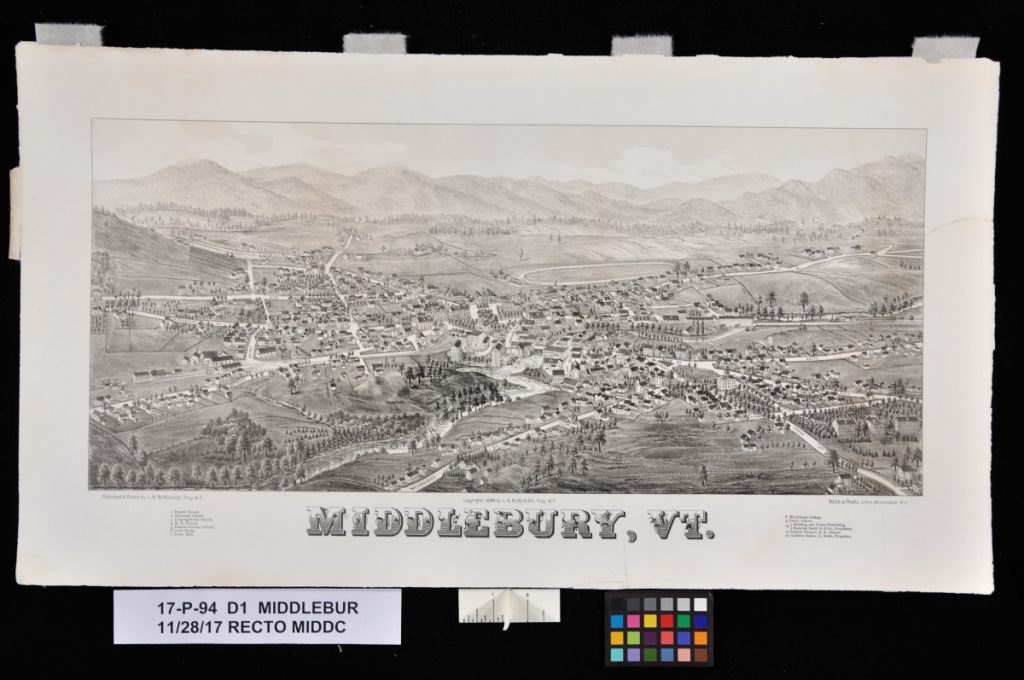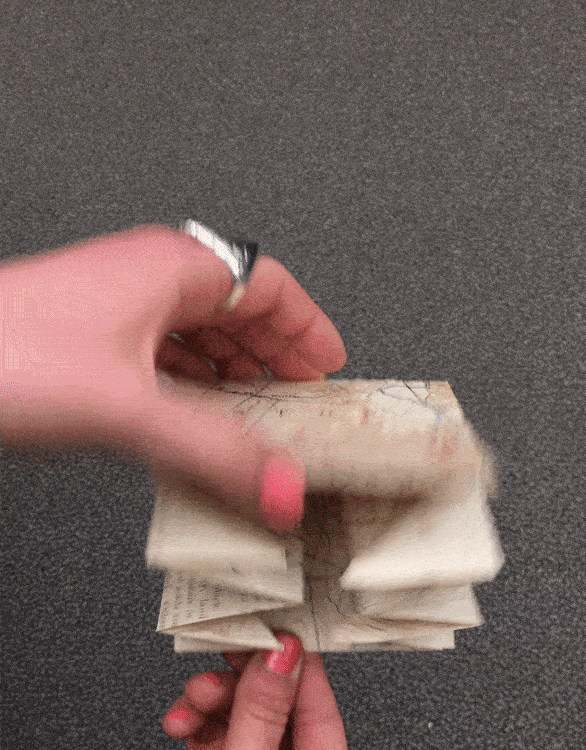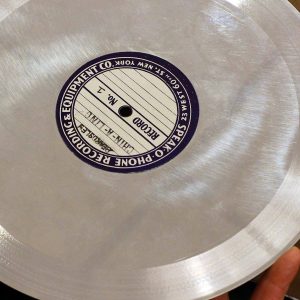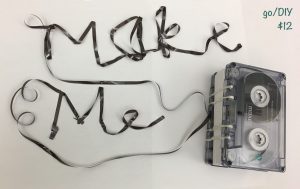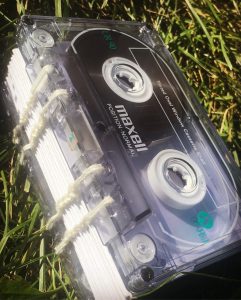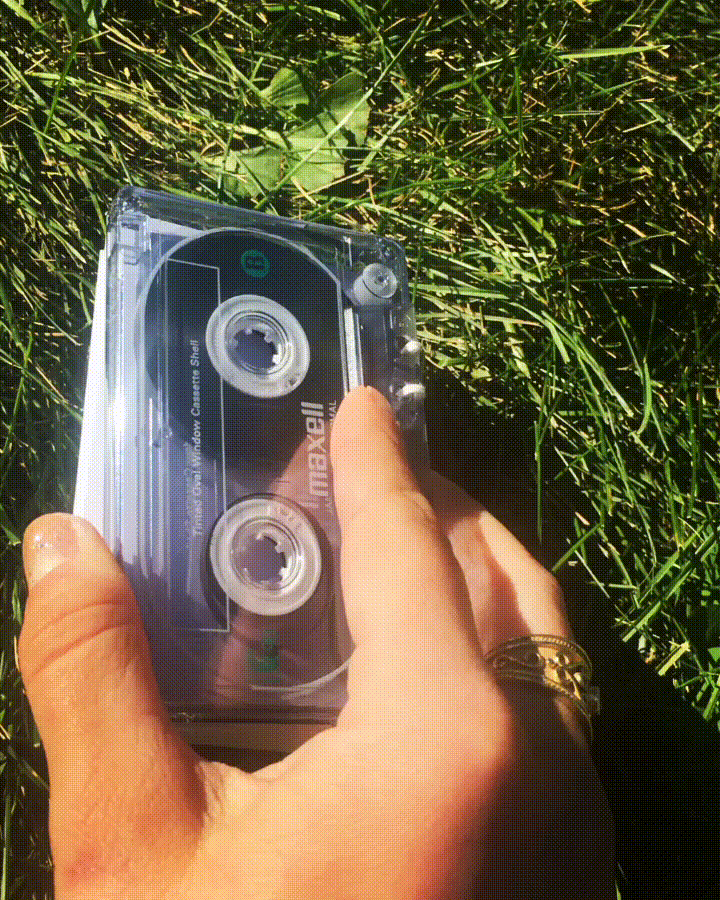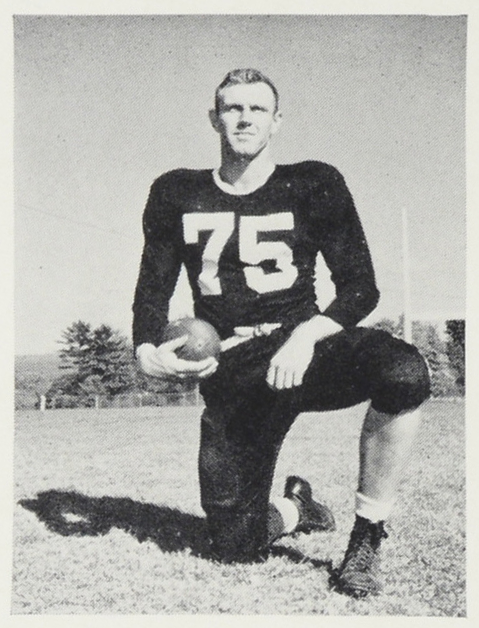KDR founded at Middlebury, 1905
Soon after the founding of Kappa Delta Rho (KDR) at Middlebury College, Delta Tau Delta, a national fraternity already in existence, sent a representative to the College to attempt to absorb KDR into that organization. Reflecting upon this crucial moment in KDR history, founding member George E. Kimball, Class of 1906, famously said that KDR “decided to paddle [its] own canoe and took no further action in the matter.” This early commitment to striking out independently, unfettered by affiliation, characterized the history of the fraternity (and later social house) at the College until its official termination in 2015.
KDR was founded by ten male students in May, 1905, in 14 Painter Hall (a commemorative plaque was installed on the building in 1956). That spring, the founders of KDR were members of Middlebury’s Commons Club, united by their dissatisfaction with its lack of exclusivity (membership was open to all who wished to join).
Painter Hall in 1906, one year after the founding of Kappa Delta Rho. Photo available via the Internet Archive.
Competing with previously established national fraternities on campus was difficult for KDR during its first years in existence (for example: Chi Psi, Delta Kappa Epsilon, and Delta Upsilon). Of the new fraternity’s ability to entice students to join, one faculty member remarked that it would have “a hard row to hoe,” a phrase which members fondly recount when discussing the success of KDR in the face of adversity. In fact, KDR remained exclusive to Middlebury College only until 1913, when its “beta” chapter was established at Cornell University. Today, there are 41 active KDR chapters, and the fraternity has initiated more than 25,000 members since its inception in 1905.
Early traditions
The founders selected official colors (Middlebury blue and Princeton orange) as well as an official flower (the red rose), designed a coat of arms, drew up a constitution, and adopted a motto: Honor Super Omnia (“Honor above all”).
Middlebury College students on a Kappa Delta Rho-sponsored hayride, 1942. Photo available via the Internet Archive.
Early traditions adopted by the Middlebury chapter of KDR include the “Frat Ride,” a post-exam event during which brothers, including KDR alumni, and their dates went to Silver Lake for the day and returned to campus by train, at which time they reportedly danced in the frat rooms until midnight. Other traditions include the annual initiation banquet held at the Brandon Inn. KDR adopted 48 South Street as its physical residence in the 1920s and the chapter remained based in the house until 2015.
Changing faces
The College Archives recently acquired KDR member photo composites from Jonathan Hanlon ’93. The faces on these boards throughout the years are representative of an increasingly diverse student body, as well as KDR’s tendency to reflect that diversity through its membership.
1959 Kappa Delta Rho photo composite. Middlebury College Special Collections & Archives.
Extending the paddle
Although the Middlebury chapter was technically an all-male fraternity, it began including women as “social members” in the late 1970s. According to Chris McInerney ’80, social members ate dinner at the house once a week, were allowed to vote in the election of officers, and were considered by KDR brothers to be members of the chapter.
When in 1990, Middlebury required that all fraternities on campus become coeducational or be terminated, KDR chose again to “paddle [its] own canoe” and officially invite women to pledge. In doing so, it lost the recognition of the national organization for more than a decade, despite its status as founding “alpha” chapter.
1978 Kappa Delta Rho photo composite. Middlebury College Special Collections & Archives.
Despite the loss of its status as a nationally-recognized fraternity, KDR persisted at Middlebury: in 1991, when the College abolished fraternities, KDR emerged as a coeducational “social house,” on a campus no longer host to Greek life.
The National Fraternity of Kappa Delta Rho recognized the Middlebury chapter as its “alpha” again in 2000, but this time as its only “society,” rather than as a fraternity, to reflect the presence of women in the chapter.
2015 Kappa Delta Rho photo composite displaying the social house’s final membership at Middlebury. Middlebury College Special Collections & Archives.
Middlebury terminates KDR in 2015
On June 25, 2015, Middlebury College Vice President for Student Affairs and Dean of the College, Katy Smith Abbott, informed KDR that due to violations of hazing and conduct policies, it could no longer operate as a social house on or off campus. Citing these infractions, Abbott explained, “The activities of KDR constitute extraordinary and repeated violations of Middlebury’s policies. Regrettably, we no longer believe that it is possible for KDR to successfully reform and to create a positive impact on our community.”
The KDR house at 48 South Main Street was converted to general student housing beginning in the fall of 2015 and currently serves as housing for upperclassmen.
Kappa Delta Rho members at KDR house, circa 1980s. Available via the Internet Archive.

